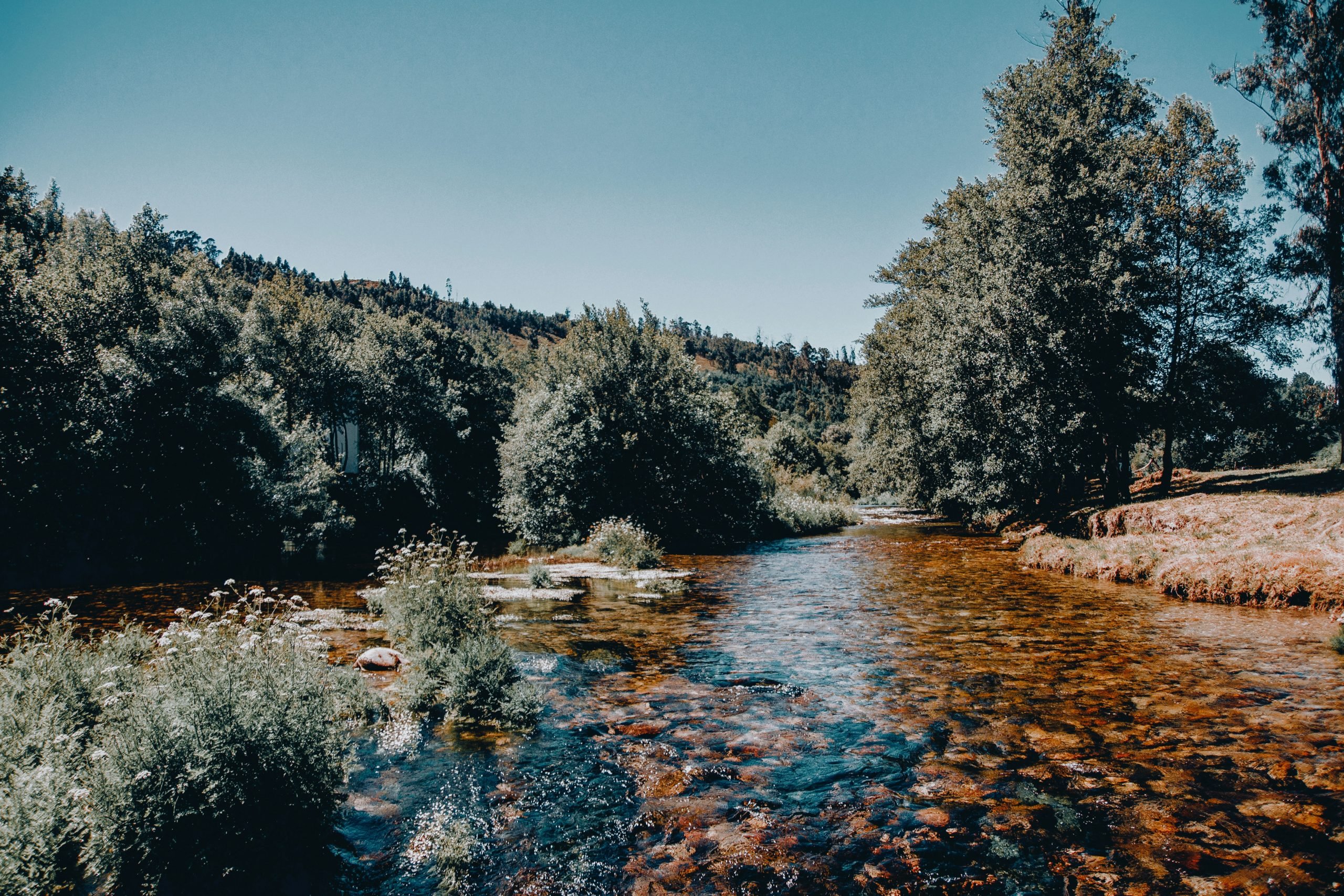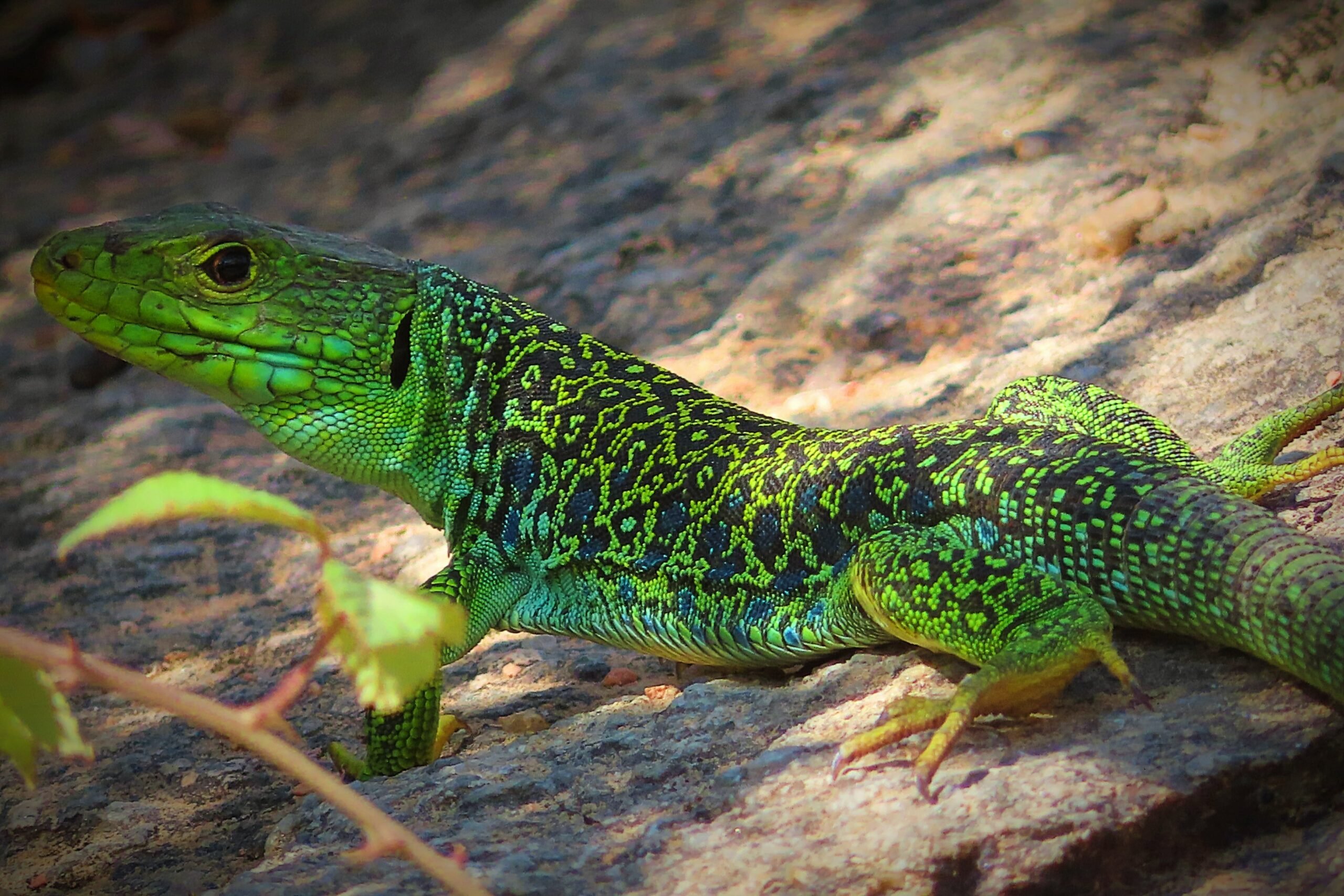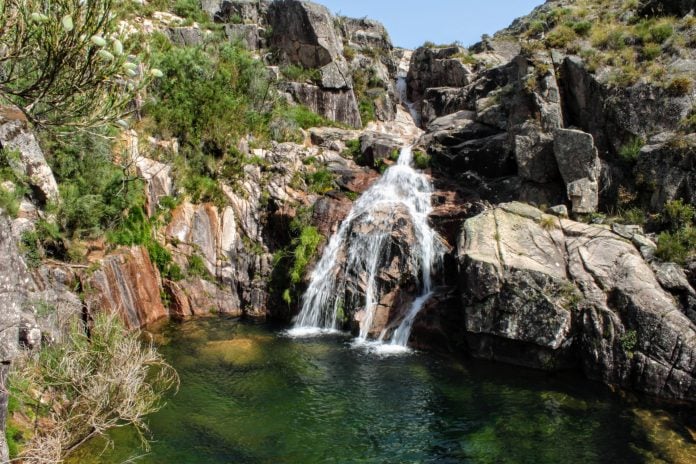In northern Portugal lies Peneda-Gerês National Park – a land of serenity hidden within dense forests. Covered in rugged mountains, mesmerizing waterfalls, serpentine roads, and long-standing castles and villages, the region is a top destination for anyone who wants to take a break from the mundane and dive deep into a natural and historical haven. Let’s take a look at 6 reasons to visit Peneda-Gerês National Park.
1. The Region Holds Geological and Archaeological Value
If you’re looking for a unique experience that will allow you to reconnect with nature on a deeper level and, at the same time, transport you back in time, Peneda-Gerês National Park is an excellent choice. Not only is it of undeniable beauty in terms of natural landscapes, but it’s also a true geological and archaeological treasure – a sanctuary that makes time stand still.
Although the oldest human signs in the park date only from 6000–3000 BC, which is unsurprising, considering the area’s geography), the park is home to granite rocks deposited 380–275 million years ago!
The Meda Da Rocalva granite landscape is regularly visited by thousands of tourists – no wonder it’s among the park’s most famous places! It is situated in Vilar De Veiga in the municipality of Terras De Bouro. Together with Roca Negra and Cutelo de Pias, Meda Da Rocalva is part of the group authorities call As três magníficas (The Three Magnificent Ones).
Furthermore, it is believed that the park was shaped into the landscape we see today during the Variscan orogeny that occurred during the Late Paleozoic. In easier terms, the Variscan orogeny was a geologic event during which mountains were built. Additionally, some hill peaks show glacier traces in the form of U-shaped valleys and flakey rocks.
In short, geology enthusiasts will undoubtedly have an amazing time in the park while immersing themselves in natural elements that formed millions of years before our time!

2. The Park Is Rich in Historical and Religious Sites
The earliest signs of human establishments in Peneda-Gerês National Park date from 6000-3000 BC. As such, you may stumble upon dolmens and other types of megalithic tombs dating from roughly 3000 BC. The park is also historically enriched by the Roman Geira road and the multiple mile markers.
Of particular fascination for tourists interested in the historical background of northern Portugal is the village of Vilarinho das Furnas. The territory was intentionally flooded in the early 1970s. During the summer, the low water levels reveal remains of the lost village, including once-inhabited houses and pathways.
Another tourist attraction located very close to one of the park gates is the Castle of Lindoso. It’s a medieval castle that further adds value to the region’s historical heritage and enriches any visitor’s experience. The castle is thought to have been built in the 13th century and has gained its notoriety for playing a significant role during the Restoration of Independence thanks to its location close to the border.

Amidst the vibrant nature of the park lies the Sanctuary of Our Lady of Peneda (Santuario de Nossa Senhora da Peneda), dedicated to Our Lady of the Snows (Nossa Senhora das Neves). It is thought that she had appeared at the site during the Middle Ages, and consequently, the sanctuary was built in her honor.
In the first week of September, the sanctuary brings together thousands of people from both Portugal and the surrounding countries who, besides delighting in the natural beauty of the park, seize the opportunity to immerse themselves in a spiritual journey and seek solace within sacred spaces.
3. Peneda-Gerês Is a Botanical Gem
Do you always look forward to hikes and walks in the woods just to spot a plant in bloom? Are you usually on the lookout for particular trees or shrubs? If so, Peneda-Gerês National Park is going to be a haven for you!
The region is truly a national treasure in terms of vegetation. The park is situated between the Atlantic and Mediterranean environments, so it covers three climatic systems, which, in turn, are also affected by topography (mountainous, hilly areas). Consequently, the ecosystems it shelters allow for a highly diverse flora!
Depending on what park parts you visit, you’ll see European oak trees, butcher’s broom shrubs, maple trees, Portuguese laurel flowering plants, and even strawberry trees, which, despite their common name, produce gorgeous, round arbutus berries in autumn.
Almost 80% of the park’s territory is covered in bush and shrublands, which include European gorse, common heather, common juniper, pale butterwort, and marsh violet. Those who want to spot rare plant species should be on the lookout for the rare chain fern species growing along the river courses.

4. A Land of Wild Animals
A trip to Peneda-Gerês National Park is incomplete without spotting at least some of the animals residing in the area. In fact, it’s almost impossible to leave the park without seeing them! It’s not uncommon for visitors to be accompanied by feral cows or horses while walking or hiking through the park! A truly unique experience indeed!
Studies have shown that Peneda-Gerês National Park is home to 235 vertebrate species. Almost all are either threatened or legally protected, which means that the park is a top destination for people looking to observe rare animals in their natural habitats.
The gold-striped salamander, for example, is among the threatened species. It’s native to the park and can be seen in mountainous areas close to well-oxygenated streams. Another species listed as Near Threatened on the IUCN Red List is the lovely European otter, which lives close to water sources.
The adorable European pine martens and the cute red squirrels are quite common but not nearly as abundant as roe deer, which are the symbol of the park.
Peneda-Gerês is home to roughly 100 Spanish ibex, which replaced the extinct Portuguese ibex. Garrano horses are highly common as well. They are not fearful of humans, so you’ll likely stumble upon some during your trip. As mentioned, wild cows play a significant role in shaping the park’s biome.
Bird-watching enthusiasts should undoubtedly add Peneda-Gerês National Park to their must-visit list! It shelters 147 avian species, most of them gathered in the Mourela region. You’ll likely spot yellowhammers, hen harriers, European honey buzzards, garden warblers, and others. Some protected birds include the red-billed chough and the snipe, which relies on Peneda-Gerês National Park as its only breeding place in the country.

5. Connecting with the Land and the Community
Visiting Peneda-Gerês National Park doesn’t only make for a pleasant trip to the heart of nature, it’s also a fulfilling voyage into Portugal’s soul.
The villages and settlements within the area provide tourists with an authentic, first-hand perspective on the country’s rural areas that transcends any language barrier. Just a quick glimpse into the day-to-day life of people living in those long-standing villages can unravel Portugal’s beauty from a different point of view.
In Soajo, for example, you’ll spot the famous espigueiros, the traditional granaries used to store animal feed. The oldest espiguerios date from the 1780s and some of them are still used by locals. Don’t miss out on Lindoso, as well, which, besides the castle and its espigueiros, has some awe-inspiring viewpoints and is close to Poço Negro Waterfall.
Another truly serene region that should be a must-visit destination for anyone looking to get rid of the urban busyness, reconnect with nature and their true self, and feel the sense of Portuguese community is Várzea in Arcos de Valdevez. It’s a very small settlement at the border with Spain. The village doesn’t even have roads for cars, so you have to park somewhere outside the village.
Várzea overlooks the Lima River, which separates Portugal and Spain. Although the village probably doesn’t have properties for rent (that’s how small and local it is!), you can rent something in the vicinity and easily arrive there by car to spend a few hours exploring the surroundings! The tranquility and peacefulness you’ll experience are indescribable – a once-in-a-lifetime experience!
6. An Abundance of Natural Landscapes
Besides the land’s historical and wildlife richness, Peneda-Gerês National Park is (obviously!) a breathing proof of nature’s grandeur. The views you’ll enjoy are truly breathtaking! The Vale da Peneda viewpoint, the Pedra Bela viewpoint, and the iconic viewpoints from the village of Pitões das Júnias offer spectacular views of the beauties of Portugal that will charm you at once!
The region is also abundant in waterfalls and hidden gems where you can swim, bask in the sun, and enjoy the silence of nature. Don’t forget to check out the Fecha de Barjas, Arado, and Portela Do Homem waterfalls!
If you are a hiking enthusiast, you can embark on a lifetime journey by choosing one of the available hiking trails. They’ll unravel the beauty of the park from a completely different angle.


